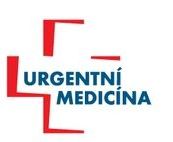INTRODUCTION
- Contents
- Editorial – Jana Šeblová
EMERGENCY DEPARTMENTS
- Post mortem examination of sudden cardiac death cases: Czech experience and possible involvement of emergency medicine in multidisciplinary process – Alice Krebsová, Štěpánka Pohlová Kučerová
PREHOSPITAL EMERGENCY CARE
- Broken heart syndrome in the prehospital care (a case report) – Jozef Kadlečík, Viliam Dobiáš
PHYSIOLOGY AND EMERGENCY MEDICINE
- Clinical physiology of glycemia regulation, or what endocrine disorder we often leave the patient at home with – David Astapenko, Roman Škulec
EDUCATION
- How to pass the specialisation exam in emergency medicine? – Katarína Veselá, Jana Kubalová, Jana Šeblová
ETHICS, PSYCHOLOGY, LAW
- Preparedness of TCTV 112 dispatchers for crisis communication with persons with suicidal proclamation – Jaroslav Ráž, Dana Rebeka Ralbovská
INFORMATION
- Rallye Rejvíz 2022 – 25th Year of the International Professional Exercise and Competition for EMS Teams – Katarína Veselá
- Emergency Medicine Day 2022 – Jana Šeblová
ABSTRACTS
POST MORTEM EXAMINATION OF SUDDEN CARDIAC DEATH CASES: CZECH EXPERIENCE AND POSSIBLE INVOLVEMENT OF EMERGENCY MEDICINE IN MULTIDISCIPLINARY PROCESS
Alice Krebsová, Štěpánka Pohlová Kučerová
Sudden cardiac death (SCD) in individuals younger than 40 years has a heritable cause in a significant subset of cases. Identification of SCD, post mortem genetic analysis along with the cardiological screening in first degree relatives represents an important tool for the primary prevention of cardiac arrest in victim´s relatives and requires multicentric and multidisciplinary collaboration.
Given that post-mortem examination is also recommended for individuals dying several hours to days after cardiac arrest. The role of emergency medicine is one of the key in identifying the possible hereditary cause of sudden cardiac death.
Genetic stratification and identification of a certain hereditary cause of sudden death is generally achieved in about 20 % of cases, however, in families with a positive history of sudden death or heart failure and / or malignant arrhythmias, genetic testing is successful in up to half of the families. In the Czech Republic, a grant project succeeded in establishing multidisciplinary and multicentre cooperation. The results of the first Czech pilot study in the period from 2016 to 2021 correspond to the results of international studies and underlines the interest of relatives and the benefits for their health. The construction of an effective cardiogenetic network for the detection and diagnosis of cases of sudden cardiac death in the Czech Republic is still ongoing and the involvement of emergency medicine physicians would be of great benefit in this kind of diagnostics.
Key words: sudden cardiac death – genetic analysis – inherited cardiovascular diseases –family cascade screening – prevention
BROKEN HEART SYNDROME IN THE PREHOSPITAL CARE (A CASE REPORT)
Jozef Kadlečík, Viliam Dobiáš
In 2020, the teams of emergency medical services in Slovakia were dispatched to 509,725 primary interventions. Chest pain is one of the most common reasons for dispatching emergency medical services. Due to facts mentioned above, it is very important, despite lack of diagnostic means, to evaluate the situation correctly, while examination is based mainly on case history and physical examination. Even if the primary evaluation of patient in prehospital medical care and differential diagnostics are right, some diagnoses remain unobtainable. Takotsubo syndrome, also called “brokenheart syndrome”, is one of those we are unable to confirm. However, we can provide the patient adequate symptomatic care and transport him/her to the appropriate medical facility. A case report with maybe incredible coincidence leading to possible fatal outcome in three patients is described in this paper.
Key words: Takotsubo syndrome – Takotsubo cardiomyopathy – choking – chest pain
CLINICAL PHYSIOLOGY OF GLYCEMIA REGULATION, OR WHAT ENDOCRINE DISORDER WE OFTEN LEAVE THE PATIENT AT HOME WITH
David Astapenko, Roman Škulec
The optimal concentration of glucose in the blood – glycemia is vital for many organs. The most important is the brain. Glycemia is affected by several hormones and cellular signaling molecules. Hypoglycemia is a potent stress factor for the body which is prevented by an acute regulatory and long–term adaptation reaction. By rapidly changing hypoglycemia to hyperglycemia, we reverse the patient’s life-threatening condition, but reperfusion of the brain with glucose-rich blood has a somewhat even more negative effect on neurons. Treatment of hypoglycemia should be gradual and careful from this point of view.
Key words: hypoglycemia, insulin, glucose
PREPAREDNESS OF TCTV 112 DISPATCHERS FOR CRISIS COMMUNICATION WITH PERSONS WITH SUICIDAL PROCLAMATION
Jaroslav Ráž, Dana Rebeka Ralbovská
This paper thesis is dedicated to the 112 emergency call centres problematics. They are part of the Fire Rescue Corps of the regions of the Czech Republic. The topic is focused on crisis communication with people with verbalized suicidal thoughts and on the problematics of its solution by emergency line dispatchers. The Introductory part defines the basic concept related to the position of emergency call centres within the Fire Rescue Corps and a description of the establishment of the 112-emergency line. The types of suicidal behaviour, its definitions, possible causes and possible solutions, including communication on the 112-emergency line, are also described. The practical part examines the extent of preparedness, personal experience and ways of perceiving by the dispatchers of the 112-emergency line in calls with a suicidal theme. The necessary data was collected using the anonymous non-standardized questionnaire form a survey and the obtained data are displayed through the form of graphs and tables after statistical analysis. This data, together with a comparison of the thesis of other authors, come with a discussion of the individual results.
Key words: emergency line – emergency dispatcher – suicidal behavior – suicide – telephone crisis intervention
